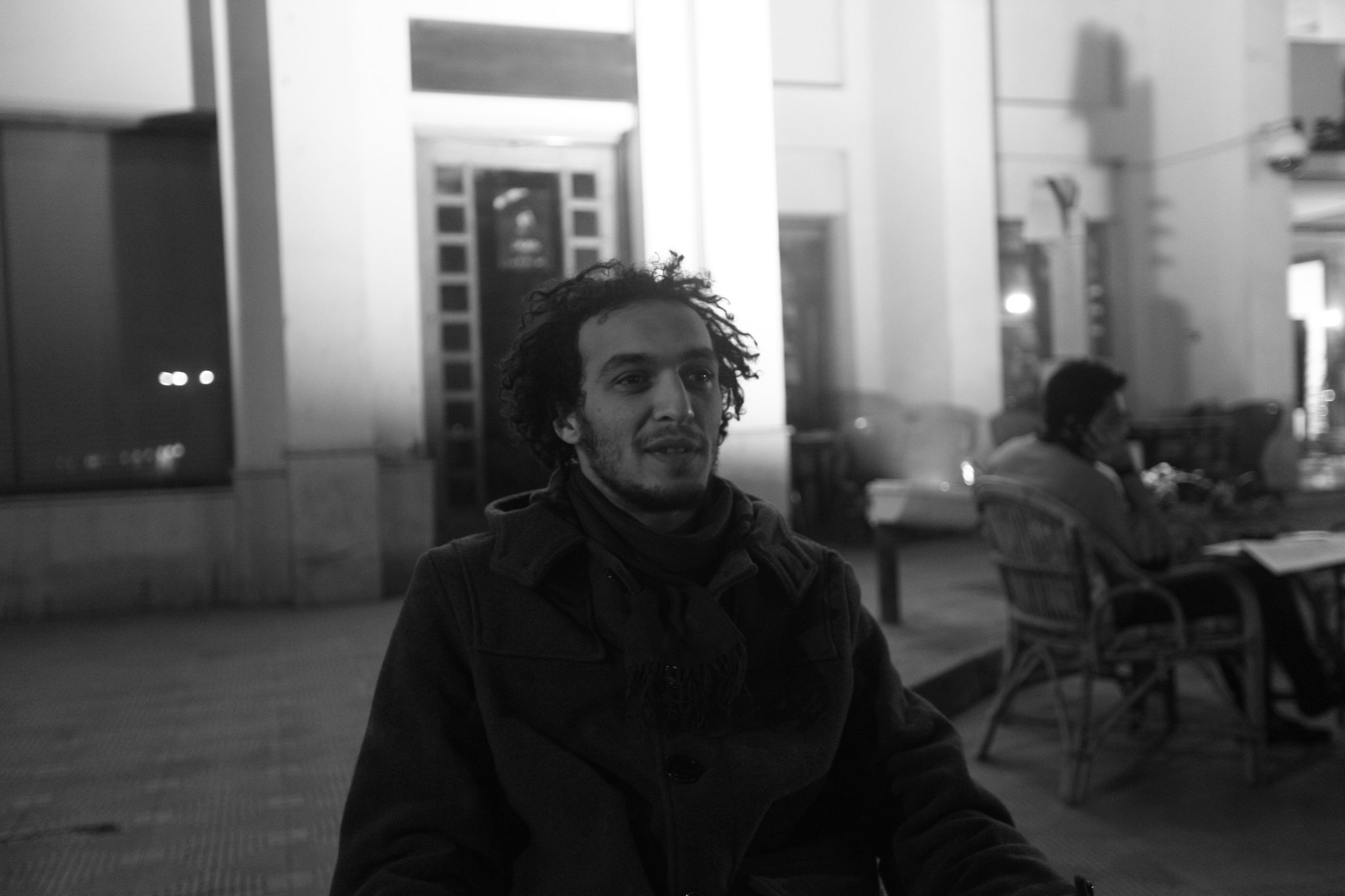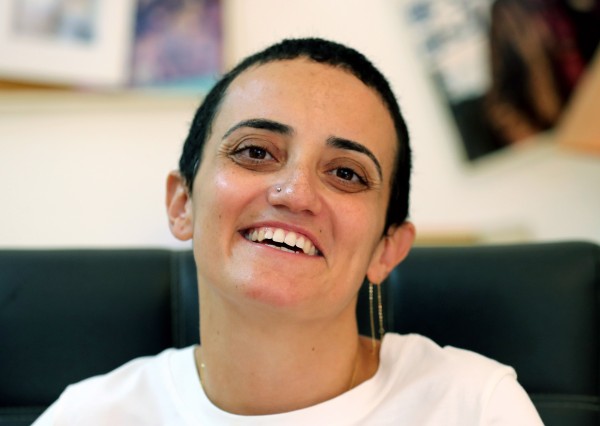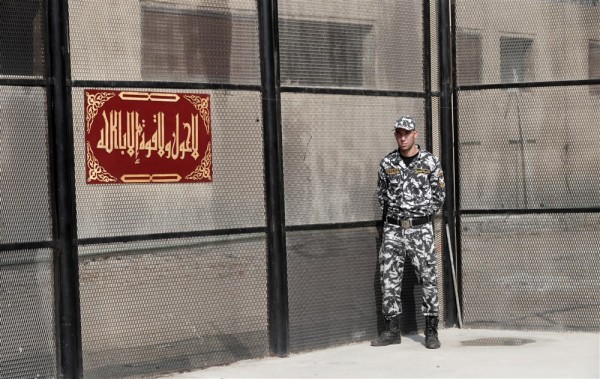
“It’s my life and it’s my job”
Freed photojournalist #Shawkan was one of many journalists wrongly imprisoned in #Egypt since 2013. I call on Egyptian authorities to release all other journalists still behind bars! #PressEgypt #JournalismIsNotACrime
Egypt’s Shawkan: Jailed for taking photographs

In 2013, Egyptian photojournalist Mahmoud Abu Zeid got caught up in one of the most brutal attacks against civilians in modern history.
The young photographer, commonly known as Shawkan, had been covering clashes between security forces and protesters which had broken out in Rabaa Adaweyya Square in Cairo following the controversial ousting of Islamist president Mohamed Morsi.
On August 14, the anti-military demonstrations turned into a bloodbath in which more than 800 civilians were killed as the army forcibly cleared the square. Helicopters, live ammunition, tear gas and water cannons were used to disperse the sit-in demonstrators. Hundreds of protesters were arrested. Many journalists were also caught up in the crossfire.
Shawkan, a freelancer who was there only to document the unrest, was among those arrested by security forces. At the time he had been on assignment for the London-based photo agency Demotix. Though his brother had warned him not to attend to protest, Shawkan replied by saying: “It’s my life and it’s my job.”
Though his only crime was taking photographs, he was charged alongside hundreds of supporters of the Muslim Brotherhood, who had taken to the streets to protest the seizure of power by the army general and future president, Abdel Fattah al-Sisi.
After the arrest he was transferred to Abu Zabaal prison, where he spent several months behind bars before being moved to the infamous Tora Prison. Altogether, he spent two years in pre-trial detention, during which time his family were unable to visit him because of “security reasons”.
In March 2016, Shawkan was officially included in the mass trial known as the “Rabaa Sit-in Dispersal”. The case saw Shawkan and 738 other people prosecuted together for the killing of 17 men, including seven police officers. Other charges included illegal gathering, incitement to break the law, and involvement in violence.
Despite having no political-affiliation, Abu Zeid was accused of “murder and membership of a terrorist organisation”. The charges sparked strong condemnation from international rights groups, who called for his release. Two foreign journalists arrested along with Shawkan were later released.
In various interviews with Egyptian media, Shawkan’s family and friends said that he was not a member of any political party. They emphasised his distance from the Muslim Brotherhood, even pointing out anti-Morsi stickers and flyers in his room.
At the trial, 75 defendants were sentenced to death, 47 were given life prison terms, and 612 were sentenced to between five and 15 years. Shawkan was handed a five-year prison sentence.
During his time in prison Shawkan’s physical state deteriorated immensely. He contracted hepatitis C and suffered from malnourishment and anaemia. At the time his family also spoke out about his deteriorating mental health. They told the IPI that poor conditions and lack of care had caused Shawkan to suffer from depression.
In response friends and supporters organised several demonstrations and campaigns to raise awareness about his situation and the plight of journalists in Egypt.
While behind bars Abu Zeid won Unesco’s 2018 World Press Freedom prize. President of the independent panel of judges Maria Ressa, an IPI board member, said the honour paid tribute to Shawkan’s “courage, resistance and commitment to freedom of expression”. The New-York based Committee to Protect Journalists also honoured Shawkan with its International Press Freedom Award in 2016.
After a concerted campaign from press freedom organisations including the IPI, the award-winning photojournalist was finally released from prison in March 2019, after spending five and a half years behind bars. However, severe restrictions have been imposed on his freedom.
Though he now faces another five years of supervision during which he is required to sleep at his local police station every night, Shawkan has vowed to return to his profession in due course. He has since spoken publicly about his relief at being released and his delight at finally being reunited with his family.
Though Shawkan is now free, Egypt remains one of the largest prisons for journalists anywhere in the world. Since coming to power, president Sisi has overseen a massive centralisation of power, a dramatic crackdown on press freedom and further deterioration of media pluralism.
Aspiring Photojournalist
In an interview with the International Press Institute (IPI), Shawkan’s brother, Mohamed, had said that Shawkan discovered his love for photography and journalism in high school in Cairo, where he started taking photos as a hobby.
After graduating, he moved on to study philosophy at university but would eventually stop. During this time, his dedication to photography grew immensely as he invested significant amounts of money into photography equipment without making any profit from his craft.
Ultimately, his passion took over. Shawkan moved to the coastal city of Alexandria to work with several news outlets, both writing articles and taking photos. In addition to his official journalistic work, he liked to document people’s everyday lives.
After working as a full-time journalist in Alexandria, Shawkan returned to Cairo to freelance. With the emergence of the revolution, he saw a good opportunity to develop his photojournalistic career. It was this work that lead to his eventual arrest.
At least 60 journalists are behind bars in Egypt. #PressEgypt is IPI’s campaign for their release.
Join our call and help press Egypt to ensure all of the country’s journalists can do their jobs freely and without fear
Click edit button to change this code.
Click edit button to change this code.
Click edit button to change this code.
Click edit button to change this code.
Latest News on Egypt
06.3.2024
The IPI global network calls on Egyptian authorities to immediately drop charges against L…
08.3.2023
The IPI global network condemns the Egyptian government’s decision to pursue criminal ch…
28.2.2023
The IPI global network condemns Egypt’s detention of Al Jazeera journalists Hisham Abdel…



